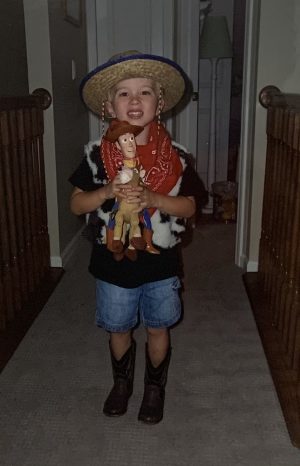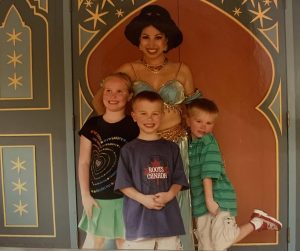March 8, 2021

Growing up, nobody could tell me that I wasn’t a princess. I flaunted my best gowns and danced in my finest slippers. My princess garb may have been jean shorts and cowboy boots, but I wouldn’t allow the limitations of my wardrobe to put a stop to my royal reign. You could find this princess dancing and singing along to Britney Spears, and sometimes she could be spotted in her favorite outfit from the forbidden wardrobe, “borrowing” my mom’s heeled sandals and the life sized barbie’s bonus gown. In these brief moments, I could forget everything. I wasn’t a laughable little boy wearing a silly costume. I was truly myself, and I had a voice. I may have been using it to yell along with “Oops I did it again,” but I had a voice nonetheless. These times when I could truly be myself never lasted long enough. My family would take my princess garb, label it a costume, and place it high above my reach. Without knowing it, these small, seemingly meaningless actions destroyed my self worth, and along with it, my voice.

As the years passed, I no longer felt like a princess, and worse, I felt like I had nothing important to say. I never saw a future for myself: whenever I tried, ideas about upholding masculinity, like being a dad, terrified me. I started to believe that a future with happiness wasn’t in my cards, but even if I couldn’t live a fulfilling life of my own, I had to do whatever I could to support others. This belief was reinforced through my love for film, where I could escape my own circumstances two hours at a time: I slowly realized I wasn’t the inspiring female lead, but the boring side character who existed not for themselves, but purely to further the story of someone more important.